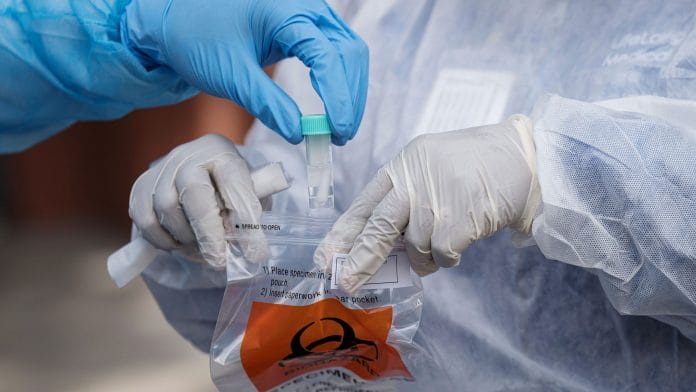New Delhi: Scientists around the world continue to work towards understanding the novel coronavirus better, which has led to over 5,19,397 deaths across the world.
Here are some of the latest research findings on the coronavirus front.
Children with Covid-19 may develop neurological symptoms
Children with Covid-19 may develop neurological symptoms, without developing any of the known respiratory symptoms associated with Covid-19, a study suggests.
The study, published in the JAMA Neurology, looked at the neurological manifestation of the infection in four paediatric Covid-19 patients.
All four children required intensive care admission for the treatment of Covid-19 pediatric multisystem inflammatory syndrome. Neurological symptoms in the children included encephalopathy, headaches, muscle weakness, and reduced reflexes.
The researchers suggest that such neurological symptoms should also be taken into account for Covid-19 diagnosis in children, in the absence of respiratory symptoms.
Also read: Children as likely to spread Covid as adults, says new study, adding to confusion
Lab experiments with ‘mini-brains’ suggest Covid-19 virus can infect brain cells
Scientists have found that organoids or “mini-brains” — tiny tissue cultures made from human cells that simulate whole organs — can be infected by the Covid-19, suggesting the virus can infect human brain cells.
Several reports have suggested that a significant number of patients with the disease show neurological symptoms, but it has been unclear whether or not the virus infects human brain cells.
In this study, published in the journal ALTEX: Alternatives to Animal Experimentation, the researchers from Johns Hopkins University in US demonstrated that certain human neurons express a receptor, ACE2, which the SARS-CoV-2 virus uses to enter the lungs.
When the researchers introduced SARS-CoV-2 virus particles into a human mini-brain model, the team found evidence of infection and replication of the pathogen.
Coronavirus can directly infect heart cells, lab experiments show
The SARS-CoV-2 can infect heart cells in a lab dish, according to a study which suggests that the virus may be able to directly infect heart cells in Covid-19 patients.
Many Covid-19 patients experience heart problems, but it was assumed this was due to pre-existing cardiac conditions, inflammation and oxygen deprivation — all of which result from the infection.
However, the study, published in the journal Cell Reports Medicine, suggests that SARS-CoV-2 virus can directly infect the individual muscle cells of the heart.
The virus can also quickly divide within the heart muscle cells, resulting in changes in their ability to beat after 72 hours of infection, the study found.
Also read: How a Chinese firm jumped to the front of the global Covid vaccine race
New molecules that can inhibit SARS-CoV-2 replication
Scientists have identified a library of molecules that shut down the SARS-CoV-2 polymerase reaction, which helps the virus replicate its genome inside infected human cells.
Stopping this polymerase reaction will stop the growth of the coronavirus, leading to its eradication by the human host’s immune system.
Five of these molecules, identified in the study published in the journal Antiviral Research, are already approved for use in the treatment of other viral infections including HIV/AIDS, cytomegalovirus, and hepatitis B.
The researchers hope that their findings may help guide the design and synthesis of a new drug candidate to fight Covid-19.
Evidence does not support the continued use of point-of-care Covid-19 antibody tests
There are major weaknesses in the research that serves as evidence base for Covid-19 antibody tests, according to researchers who suggest that the current point-of-care tests should not be used.
Antibody tests look for the presence of virus-fighting antibodies in blood samples, and can be a useful tool for monitoring whether a population has been exposed to the virus.
Several governments have used them for population servers, and thus, a team of researchers set out to determine the diagnostic accuracy of antibody tests for Covid-19.
The study, published in The BMJ, looked at the research measuring sensitivity and/or specificity of a Covid-19 antibody test.
Sensitivity measures the percentage of people who are correctly identified as having a disease, while specificity measures the percentage of people who are correctly identified as not having a disease.
The sensitivity ranged from 66 per cent to 97.8 per cent depending on the type of test method used, which means that from 2.2 per cent to 34 per cent of people exposed to Covid-19 would be missed.
The specificities ranged from 96.6 per cent to 99.7 per cent that indicates 0.3 to 3.4 per cent of peopple would have been wrongly identified as having been exposed to Covid-19.
Also read: Web-like substance emitted by white blood cells could worsen outcome in Covid patients: Study






